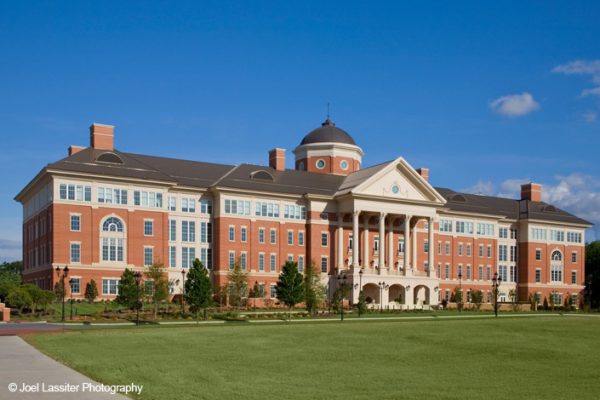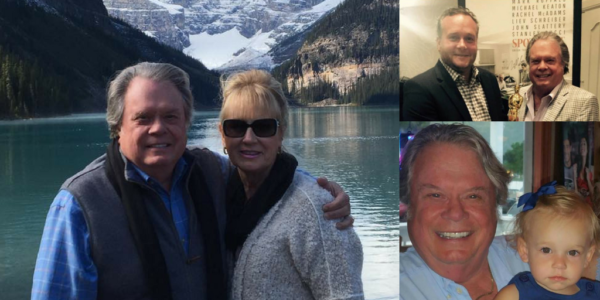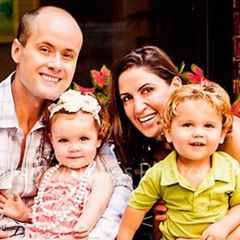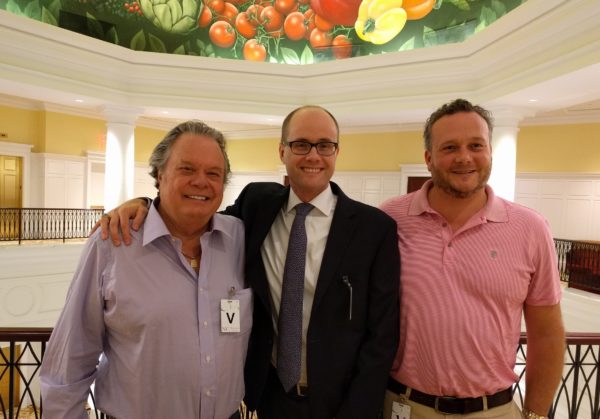 “A strong person is the one who knows how to be quiet, shed a tear for a moment, and then picks up their sword and fights again!”
“A strong person is the one who knows how to be quiet, shed a tear for a moment, and then picks up their sword and fights again!”
(Montel Williams)
A mutual enemy forged an unlikely bond between two men of different generations, working in different industries, who otherwise may never have even met. Herman Stone is a bona fide movie theatre mogul, having spent more than 40 years as a film industry entrepreneur. He is currently founder and CEO of Stone Theatres, a big-hearted philanthropist, a dedicated family man, and Founder of Discovery MS, an organization dedicated to raising funds for Multiple Sclerosis research. Jason Cox is an Associate Vice President at Morgan Stanley, a board member of the J. Cox Family Foundation, also a dedicated family man, and partner with Herman at Discovery MS. These two men have one mutual goal: finding a cure for MS.
I am very proud of Herman and Jason’s dedication to finding a cure for this horrible disease. I was so impressed by each of them during our interview. So, as a Happy Living reader, I think you’re about to be impressed too!
Matt: Hi Herman and Jason, please tell us a little about yourself and how you got where you are today?
Jason: Hello, my name is Jason Cox and I have gotten to where I am by a series of happenstances. Early in my professional career, I was working in my hometown and for my own businesses. Then, in September of 2001, Multiple Sclerosis took the vision from my right eye. So I decided I’d better go back to school because no matter what happened with my MS, I would always be able to think. So I applied and was accepted at the University of Notre Dame, and got my MBA there. I continued my academic exploration at the University of Southern California, where I received a Masters degree in Real Estate. Then I moved to North Carolina where I met my wife in 2007. In 2009, I met Herman at the David H. Murdock Research Institute in Kannapolis, North Carolina. I was so impressed with what they were doing because it was true, pure research and thought with the aim of developing a cure for MS. There were no extraneous expenses. So Herman and I began working together to create financial support to cure the disease I’ve been living with for 22 years.

Herman: Hi Matt, I’m Herman Stone. Well, I remember reading about this amazing facility in Kannapolis, the David H. Murdock Research Institute and just before that, I learned that my youngest son had contracted MS… as well as my oldest child, my daughter. That was in 2008 and both of them were in their early 30’s. I wanted to make a difference so I asked Mr. Murdock if I could meet with him. I told him I’d like to see a study at his institute to find a cure for MS. When he asked me if I would make a contribution, I said I had recently sold my business and if he’d grant me my wish, I’d donate a million dollars. He quickly shook my hand, looked me straight in the eye and said, “Mr. Stone, we will start an MS research facility at the campus. That is my honor. That is my pledge to you.” And with that, I struck him a million dollar check. And that’s why I am here today, supporting, and speaking on behalf of, Discovery MS.

Matt: How has significance played a role in your journey? (My philosophy on significance has two components: Doing something you love and creating something of value to others.)
Jason: My motivating force in life is to always be of help to others. My work for Discovery MS is helping others pursue an important cause, and one that I understand deeply, and that I have a very personal interest in. I believe God gave me this disease so I would use the gift he gave me (my ability to talk with anyone) to help us find a cure. He knew I would be a good advocate.
Herman: When you’ve been blessed with good fortune, as I have, I believe the greatest thing you can do for yourself and your fellow man is to really give back to the community. That’s something I’ve done in the theater business, a great industry that I love with all my heart. I remember years ago, when I first became involved with MS: My good friend Tom Sherak called me. He was the president of 20th Century Fox at the time. He was crying. He said his daughter had been diagnosed with MS. This was six or seven years before my own daughter was diagnosed. He’d started the MS Hope Foundation to raise money and awareness for multiple sclerosis research, and he asked me to buy a table at an event for $10,000. I said yes, and I bought a table there annually for the next 15 years. That event helped Tom to fund an MS research facility at UCLA. Tom and I agree “you can’t take it with you”. In fact, we lost Tom the year before last. So it’s better to give back and share.
Matt: Was there a specific moment or situation when you became aware of those things that are most significant to you?
Herman: It was a shock when my daughter came to me and told me she had MS. It was a tremendous blow. Then five years later, my son was having some problems and he was diagnosed with it too. Having two children with MS is very rare. I think when hardship touches you; it puts a new perspective on your life. It certainly did for me. That’s when I knew I had to change some things in my own life and see if I couldn’t do some things that could make a difference. That was my wake-up call.
Jason: Mine was in September of ’01. I was on the interstate heading to South Bend, driving into the sun, and I was just feeling that something was not right. Shortly afterward, I was diagnosed with MS. It was like looking into the abyss because when you have the disease that I have, you don’t know what your future’s going to be. But I’ve always been stubborn, so at that point, I determined I was not letting this stop me. I committed to doing everything in my power and might to fight this disease, period! My moment was the day I decided that enough is enough. It’s not going to kill me. I am going to keep moving forward.
Matt: What obstacles have you faced in your pursuit of significance? How did you overcome them?
Herman: One big obstacle we needed to overcome was to keep our wonderful scientists, lead by Dr. Simon Gregory, focused on the research rather than on writing grants and raising money. That’s when Jason and I decided we needed to go a different way. We needed to raise money to fund the facility and equipment and keep the scientists researching all the time.
Jason: Yes. But raising money outside the traditional grant process has another huge advantage for us. It gives the scientists freedom to go wherever the research leads them. With grant money, they are limited to the strict guidelines of each grant. Our scientists are really smart people. If we give them the freedom to think and explore “outside the box”, they’ll come up with breakthroughs. Our team has already developed a mouse that replicates MS. Our goal is to raise a million dollars in unrestricted funding each year. And the way we’re structured, over ninety percent of all funds go directly to support pure research.
Herman: I hope we’ll exceed a million dollars each year! I truly believe that this team of scientists and our program here can make a big difference. So Jason and I are going to be very aggressive in raising money to support them.
Matt: Thank you, gentlemen. You’ve addressed obstacles in raising money to fund research to cure this horrible disease. Will you talk a little about the obstacles you face dealing with the disease in your everyday life?
Herman: I really don’t think you overcome them. I live with this everyday. I think about it constantly. You pray and you hope that there will be a cure, that there will be a miracle. I haven’t been able to overcome it. I just try to live with it the best I can.
Jason: How do I live with MS? I get up everyday and go forward. There are days you really don’t want to… days your legs don’t want to work. Nights you can’t sleep. Sometimes you don’t swallow well. But you want to know what I do? I focus on a goal. I have one goal. I want to walk my daughter down the aisle. That’s my number one goal. I don’t want to be in a wheelchair. I want to walk her. Which means I’ve got to keep walking for at least another twenty years!

Matt: What is one thing you wish you had known ten years ago?
Herman: Ten years ago is about the time I sold my business. The previous ten years had been a marathon. I was running all around the country building movie theaters. Then I sold the business and it was time to rest. All the sudden, in about two or three weeks, I was right back in the theater business. My wife had started asking when I was going to start another company. So I decided I’d go ahead and build another theater chain but that, this time, I wasn’t going to sell it. Instead, I’m going to leave it to my family. So ten years ago, I thought I was going to retire and live a life of luxury… but that only lasted a few days!
Jason: The last few years have had a lot of ups and downs for me but I wouldn’t change a thing about it. I’m in a very good place now. I have a beautiful wife and two great kids. And I have a really good career. So ten years ago, if I’d been told I’d have all this, I’d have been excited. But you can’t get where you want to be without going through what it takes to get there. Ten years ago, I wish I had known I’d end up here so I would have worried less along the way.
Matt: What is one hope you have for the next 10 years?
Herman: That’s an easy question. I hope and pray that we find a solution and a cure for MS that will give a lot of relief to a lot of folks. That’s my every day prayer, and hope, and the wish that I hold.
Jason: I hope that the David Murdock research model that we’ve created here is replicated across the country and throughout the world. I hope that we find a cure for MS and then set our sights on the next disease, and then the next. Our process is the most cost effective and collaborative research model that exists today.
Herman: I’d like to say one more thing. I am eternally grateful to David Murdock for the contribution he’s made in the battle to cure disease by creating this innovative research facility and business model.
Matt: Are there any books or resources you would like to recommend to our readers?
Jason: I’ll give you two. Firstly, The Monk Who Sold His Ferrari and secondly, The Art of War.
Herman: I’ll go with movies because I’m not much of a reader. And I’ve seen so many great movies it’s hard to pick only one. We just watched Sully and thought it was wonderful. Also, we recently saw The Magnificent Seven and thoroughly enjoyed that one too. I just love entertainment!
[Suddenly, Justin, Herman’s son, interrupted the interview to say, “Matt, there’s a book my dad really does recommend”.]
Herman: Yes, it’s Turning Inspiration into Action.

I want to thank Justin for the book plug! More importantly, I am grateful to Herman and Jason for a wonderful interview. I wish you every success imaginable on your mission to find a cure for MS, gentlemen.
If you’d like to donate to Discovery MS, click here: www.discoveryms.org
To listen to the raw, unedited, and at times very emotional interview, click below.
Image via Unsplash | This post may contain affiliate links, which means if you click and then purchase we will receive a small commission (at no additional cost to you). Thank you for reading & supporting Happy Living!
Podcast: Play in new window | Download

